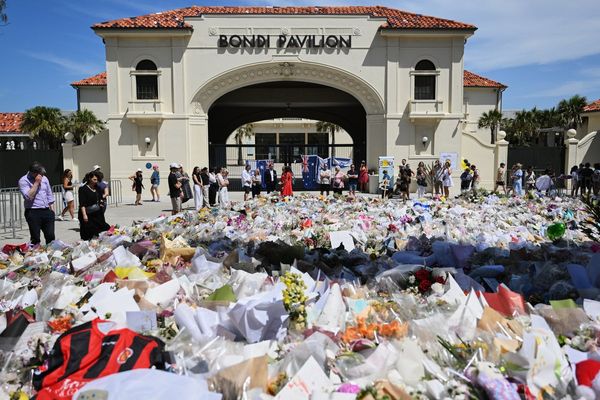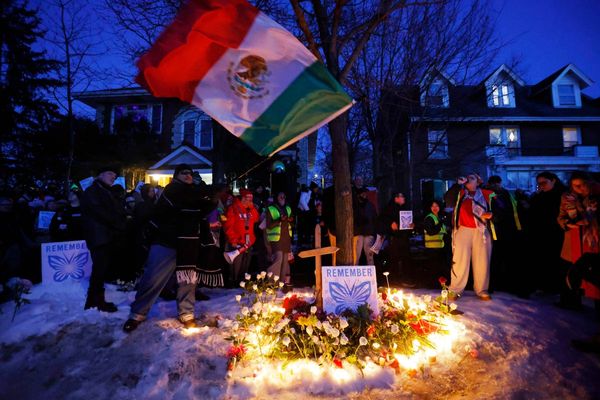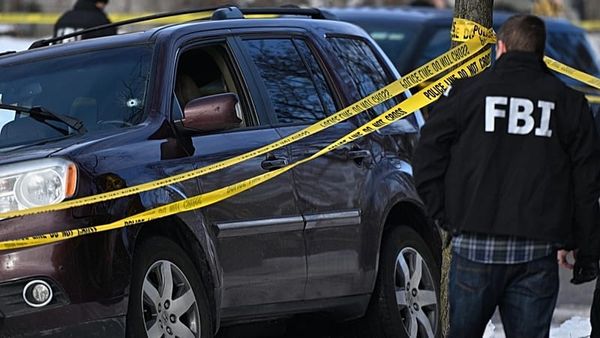
Even Volodymyr Zelenskyy’s extraordinary communication skills were stretched as he rushed to congratulate Donald Trump on the victory that Kyiv had been dreading. The Ukrainian president wrote that Mr Trump’s commitment to “peace through strength” was exactly the principle that could bring a just peace closer. Vladimir Putin’s riposte came almost immediately, via a massive drone attack on the capital, and the Kremlin’s call on the west to stop arming Ukraine to save its people.
For Joe Biden, supporting Ukraine was about defending the post-second-world-war order. It was a relatively cost-effective way for the US to degrade the capabilities of a key adversary with no risk to its own personnel. But Mr Trump is an isolationist who has a strikingly close relationship with the Russian president – and who, according to a former aide, made it very clear that he believed Ukraine “must be part of Russia”. Mr Trump said during his campaign that he could end the war “in a day” and blamed Mr Zelenskyy for the conflict.
The last Trump administration was the first to send lethal aid to Ukraine. But it also froze military funding within hours of the notorious phone call where Mr Trump pressed Mr Zelenskyy to work with the US attorney general to investigate Mr Biden. (The funding was later unfrozen.) The pair’s history further complicates matters.
Mr Trump loves to be lauded as a dealmaker and a strongman. He will not want people to believe he was steamrollered by Mr Putin. Last year he said that he would tell the Russian president: “If you don’t make a deal, we’re going to give them a lot … More than they ever got.” And Russia is losing troops at a staggeringly rapid rate, even with a boost from North Korea.
But the fiasco of Mr Trump’s dealings with Kim Jong-un demonstrates the gap between his aspirations and abilities. He has minimal patience or interest in detail. He is said to be highly susceptible to the last person to drop a word in his ear and does not want to be managed by the military establishment again. JD Vance, his vice-president-elect, has offered a prescription for peace strikingly similar to Mr Putin’s: Russia can keep what it has occupied and Ukraine stays out of Nato. In any case, Nato membership looks a lot less reassuring when Mr Trump has suggested that he would encourage Russia to do “whatever the hell they want” to members who he felt paid too little.
US military support is similar to that from all other donors combined. Though most of the vast sums from the Biden administration have been spent in US arms factories, even sales to Ukraine are not guaranteed in future. Despite attempts to “Trump-proof” the conflict, the collapse of Germany’s government, and the emboldening of the far right by Mr Trump’s electoral triumph, will further complicate European efforts to support Kyiv. All of this is likely to exacerbate questions among exhausted Ukrainians about the feasibility of a purely military solution and increase the appetite of some for, or at least toleration of, a negotiated end to hostilities.
The Biden administration is reportedly attempting to expedite as much as $9bn worth of military aid, agreed but not yet transferred. This is far from straightforward, not least because weaponry and ammunition are still being produced and because the next president could stop agreed shipments. But it is essential.
Ukraine’s situation, already so perilous, has grown vastly more so this week. The accelerated delivery of promised aid, allowing it to maximise its position before Mr Trump takes office, is now its best hope.
Do you have an opinion on the issues raised in this article? If you would like to submit a response of up to 300 words by email to be considered for publication in our letters section, please click here.







